Global Cultural History
12th Annual Conference of the International Society for Cultural History
26–29 June 2019
Tallinn University, Estonia
It is fair to say that globalisation has forced and inspired historians to search for spatial alternatives in making sense of the past, to pay more attention to supranational and transregional connections and networks. These searches have given rise to a number of approaches that, under various names such as transnational history, connected history, entangled history or global history, share the same desire to move beyond conventional geopolitical articulations and discrete civilisations, to take structured integration of the world as its primary context, to turn the concept of space again into a significant theoretical category in historical research.
The 12th Annual Conference of the International Society for Cultural History invites cultural historians all over the world to think about the interconnected world as the point of departure for cultural-historical research, and to discuss the circulations and interactions of things, peoples, ideas, and institutions across cultural and geographical zones. We invite to consider global history as a new form of cultural-historical analysis in which systems of representation and meaning making practices are placed in global contexts. We invite to focus on mobility and exchange, on hybridity and entanglement, on various cultural-historical processes that transcend borders and boundaries.
Keynote speakers
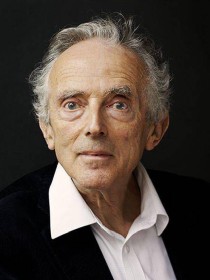 Peter Burke (University of Cambridge)
Peter Burke (University of Cambridge)
Globalising the Renaissance: the Role of the Jesuits
Peter Burke is a Life Fellow and Emeritus Professor of Cultural History at Emmanuel College, University of Cambridge, UK.
Professor Burke has published extensively on the cultural and social history of Europe. His research interests include the history of the Renaissance, the history of historical thought and writing, and the social history of language and knowledge. He has also explored the relation between history and neighbouring disciplines, including anthropology, sociology, geography, and psychology. Professor Burke has published more than 30 books, including The Italian Renaissance (1972), Popular Culture in Early Modern Europe (1978), The Fabrication of Louis XIV (1992), The Art of Conversation (1993), A Social History of Knowledge (2000), Eyewitnessing (2000), What is Cultural History? (2004), Languages and Communities in Early Modern Europe (2004), and Exiles and Expatriates in the History of Knowledge, 1500–2000 (2017). His work has been translated into more than 30 languages.
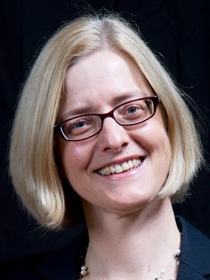 Anne Gerritsen (University of Warwick)
Anne Gerritsen (University of Warwick)
Merchant Crossings in Late Imperial China: a Micro-global Approach to the Porcelain Trade
Anne Gerritsen is Professor in the Department of History at the University of Warwick. Between 2013 and 2018, she held the Kikkoman Chair in the study of Asia-Europe Exchange, with special attention to art, material culture and human dynamics at Leiden University.
Professor Gerritsen’s research has focused on (Asian) material culture within (global) history, food and food cultures in the exchange between Asia and Europe, theory and methods of history, and gender. Her recent interest is in the global exchange of foods and medicines, including soya sauce. She has authored Ji’an Literati and the Local in Song-Yuan-Ming China (2007) and edited a number of books, including Writing Material Culture History (2015, with Giorgio Riello), The Global Lives of Things: The Material Culture of Connections in the First Global Age (2016, with Giorgio Riello), Micro-Spatial Histories of Global Labour (2017, with Christian de Vito), and Global Gifts: The Material Culture of Diplomacy in Early Modern Eurasia (2017, with Giorgio Riello and Zoltan Biedermann).
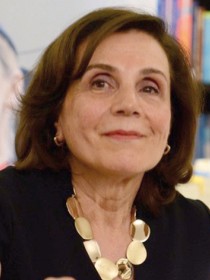 Maria Lúcia Garcia Pallares-Burke (University of Cambridge)
Maria Lúcia Garcia Pallares-Burke (University of Cambridge)
Globalising the Enlightenment: the Example of Brazil
Maria Lúcia Garcia Pallares-Burke is a Research Associate in the Centre of Latin American Studies, University of Cambridge. She was formerly Professor at the University of São Paulo.
She has worked on the cultural history of the European Enlightenment and its reception in Latin America, emphasizing a comparative approach to the circulation and reception of ideas. She also published two books about the Brazilian polymath and anglophile Gilberto Freyre, who is said to have discovered Brazil for the Brazilians in the 1930s: a study of his early years (2005) and, with Peter Burke, an intellectual portrait concerned with his whole lifetime, Gilberto Freyre: Social Theory in the Tropics (2008). Her most recent book, O Triunfo do Fracasso (2012), is about the German friend of Freyre at Columbia University, Rüdiger Bilden, and his battle for the dissemination of the idea of Brazil as a “laboratory of civilization” and for the improvement of race relations in the USA.
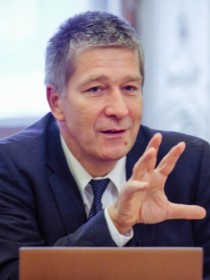 Matthias Middell (University of Leipzig)
Matthias Middell (University of Leipzig)
Transregional Dimensions of Global Cultural History
Matthias Middell is Professor of Global History and Director of the Global and European Studies Institute at the University of Leipzig, Germany.
Professor Middell’s research focuses on global history and its methodology, the history of cultural transfers, the history of historiography and universities. He has written extensively on the global implications of the French revolution, the history of East Central Europe since the eighteenth century, and on the transformations of the field of global history since the late nineteenth century. He has recently edited The Routledge Handbook of Transregional Studies (2018), The Routledge Companion to the French Revolution in World History (2015, with Alan Forrest) and Transnational Challenges to National History Writing (2013, with Lluís Roura i Aulinas). He is also the editor of Comparativ – A Journal of Global History and Comparative Studies.
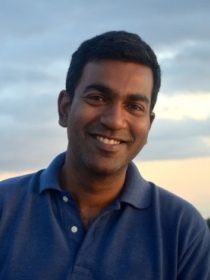 Sujit Sivasundaram (University of Cambridge)
Sujit Sivasundaram (University of Cambridge)
Making the Globe: A Cultural History of Science from the Bay of Bengal
Sujit Sivasundaram is Reader in World History at the University of Cambridge and Fellow in History at Gonville and Caius College. He is also director of the Centre of South Asian Studies at the University of Cambridge.
Dr. Sivasundaram’s research interests are in the cultural history of the late eighteenth and early nineteenth centuries in the Indian and Pacific oceans. He is especially interested in knowledge about the environment, science, technology, medicine and religion. He has authored Nature and the Godly Empire: Science and Evangelical Mission in the Pacific, 1795–1850 (2005) and Islanded: Britain, Sri Lanka and the Bounds of an Indian Ocean Colony (2013), and edited Oceanic Histories (2017, with David Armitage and Alison Bashford). He is currently working on a book on the rise of the British Empire and the age of revolutions in the Indian and Pacific oceans. He is also a co-editor of The Historical Journal.
Contact
Conference chair: Prof. Marek Tamm (Tallinn University), marek.tamm (at) tlu.ee
Conference secretariat: conference (at) tlu.ee
